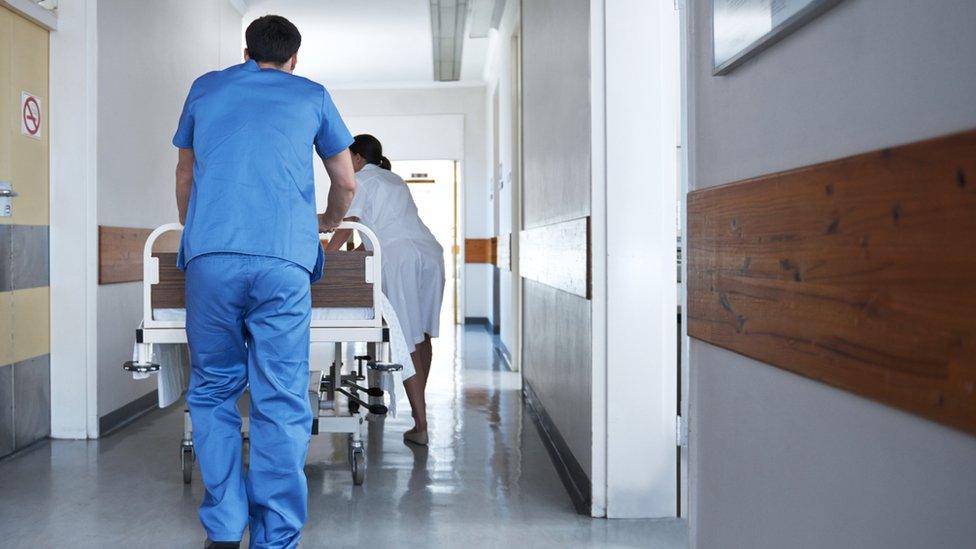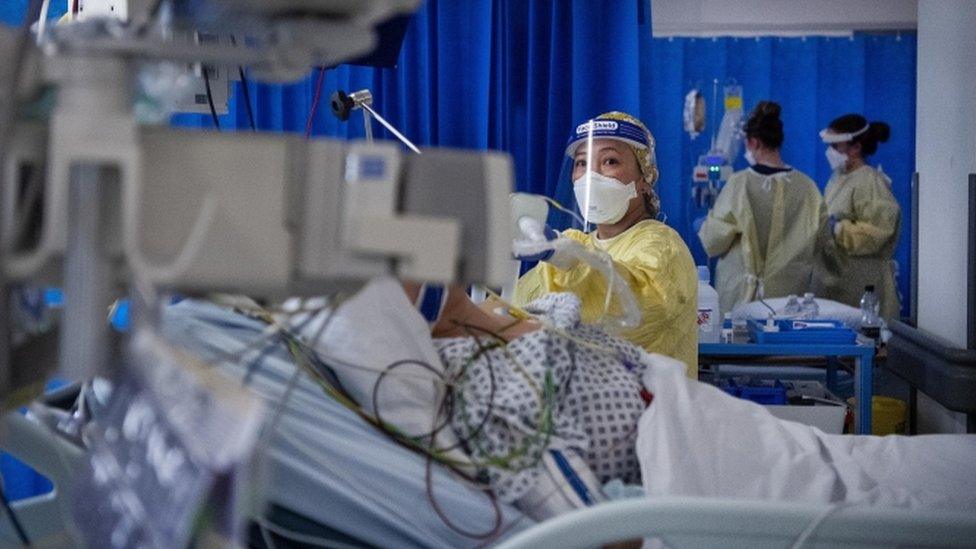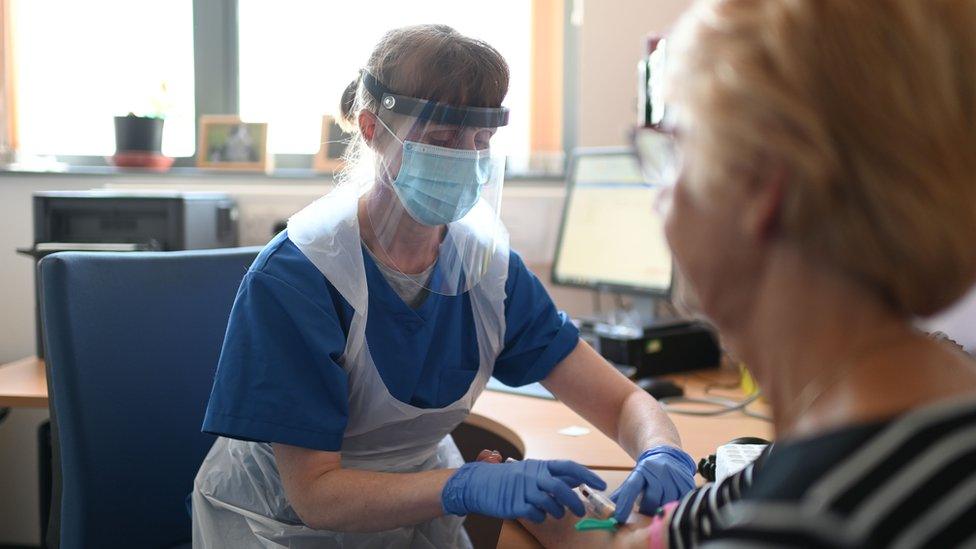NHS nurse shortages a risk to safety, says Royal College of Nursing
- Published
- comments

Shortages of nurses in the NHS are posing a risk to patient safety, the Royal College of Nursing is warning.
RCN general secretary Pat Cullen said patients were going without the care they needed because of the problems.
Feedback from the union's members in the UK cited people going without medicines and deterioration of sick patients going unnoticed as concerns.
One in 10 nurse posts in England is unfilled. But the numbers working in the NHS is rising, the government said.
Ms Cullen will set out her concerns in detail during her speech to the RCN's annual conference, which is getting under way in Glasgow.
It comes after the union gathered feedback from more than 20,000 nurses across the UK about their experiences during their most recent shifts.
They voiced concern about safety, the union said, with members saying patient care was being compromised.
Nurses cited everything from basic personal care, such as helping patients going to the toilet, through to severely ill patients getting treatment late and medicines not being given.
'Exhausted'
The feedback suggested the problems were being seen across the UK in all types of settings from hospitals to care in the community and in mental health services.
Hospital staff reported sometimes having to treat patients in inappropriate settings, such as waiting rooms and corridors, because of the time pressures.
Nurses also provided feedback setting out how the situation was affecting their wellbeing with one saying: "Myself and my colleagues are mentally, physically and emotionally exhausted and burnt out."
Ms Cullen will tell members at the conference that "enough is enough".
"Don't ever think that it is normal to not have enough staff to meet the needs of patients. It is not.
"Today members are letting the full truth be known."
Ms Cullen warned the stresses on the frontline were beginning to drive nurses out of the profession.
Figures from the Nursing and Midwifery Council show 25,000 nurses and midwives left the register last year in the UK - more than were trained domestically - although there are more nurses in total as a result of international recruitment.
"Staff are being driven out by the current way of working - the shortage of staff and too often the poor culture," Ms Cullen will say.
All parts of the UK have set out plans to increase the number of nurses working in the NHS.
The latest figures show there are now 321,000 nurses working in the NHS in England - 30,000 more than in September 2019.
The Department of Health and Social Care said this showed that, despite the problems being documented, the government in England was over halfway to recruiting the 50,000 extra nurses it had promised by 2024.
"We're grateful to all the healthcare staff for their tireless work," a spokeswoman added.
Meanwhile, a Scottish government spokesman said student places were being expanded and there was an international recruitment drive. "Growing our workforce is crucial," he added.

ADDICTED TO FOOD: How Ultra Processed Food is destroying our bodies, brains and the environment
WHAT'S THE BUZZ ABOUT?: Do electric toothbrushes actually give you a professional clean?

Related topics
- Published25 January 2021

- Published29 December 2020

- Published17 February 2021

- Published7 November 2020
